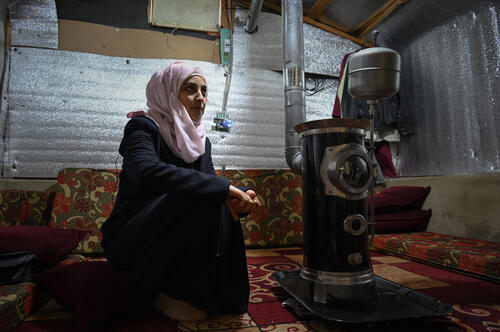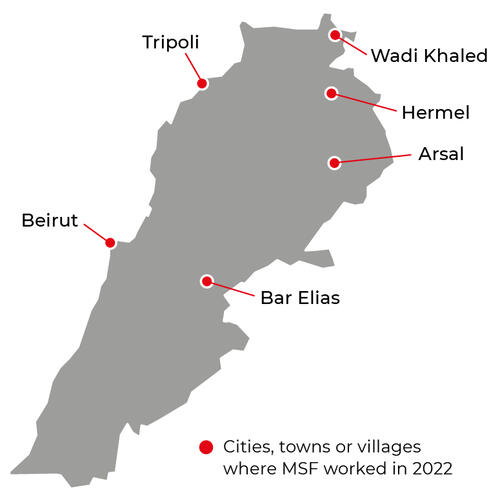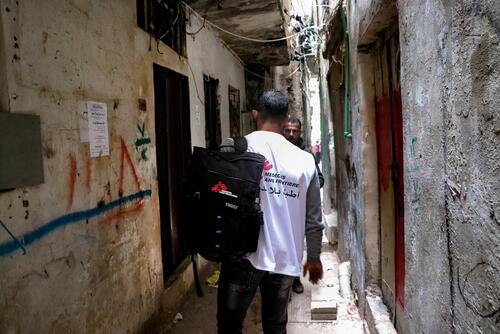
Lebanon
Despite the efforts of the Lebanese Ministry of Public Health in supporting basic and specialist healthcare for refugees, the cost of consultations, laboratory tests, and medication remains a barrier for a significant number of refugees.
MSF ensures access to free, high-quality healthcare for vulnerable people, including refugees and migrant workers. Our activities include reproductive health services, general and intensive care, treatment for non-communicable diseases, and routine vaccinations for children, in Akkar, Zahle, South Beirut and in the Bekaa valley. We also provide treatment for children with thalassemia in Zahle.
Our teams are currently running COVID-19 vaccination campaigns, including in nursing homes and in prisons. We are also conducing health education sessions which include informative messages about COVID-19 vaccination and the ways to register to get vaccinated.
Our activities in 2022 in Lebanon
Data and information from the International Activity Report 2022.
676
676
€25.6 M
25.6M
1976
1976


165,100
165,1
44,700
44,7
10,600
10,6

3,620
3,62

Syrians in need of continuous support

Healthcare and psychological support for Syrian refugees

Meeting the health needs of Syrian refugees

Caring for the most vulnerable

Precarious living conditions make daily life a struggle

Ahmed, 72, Palestinian refugee, 'I am a guest here'

Hakim, 'Living conditions are very difficult; I don't think there's anyone who finds them tolerable'

Yassin, 67, 'Life... which life do you mean?'

The challenge of providing aid to the most needy in Lebanon
Contact us

Hamra main street, Domtex building, 5th floor
Beirut, Lebanon
Area zip code: 1103



